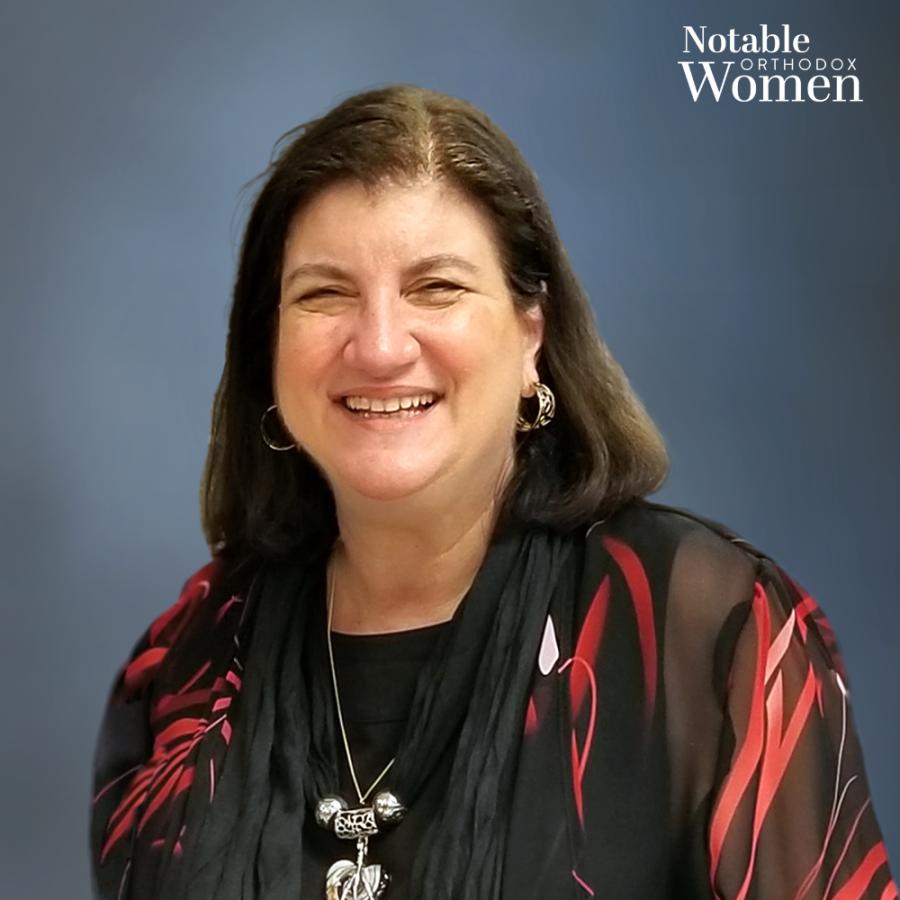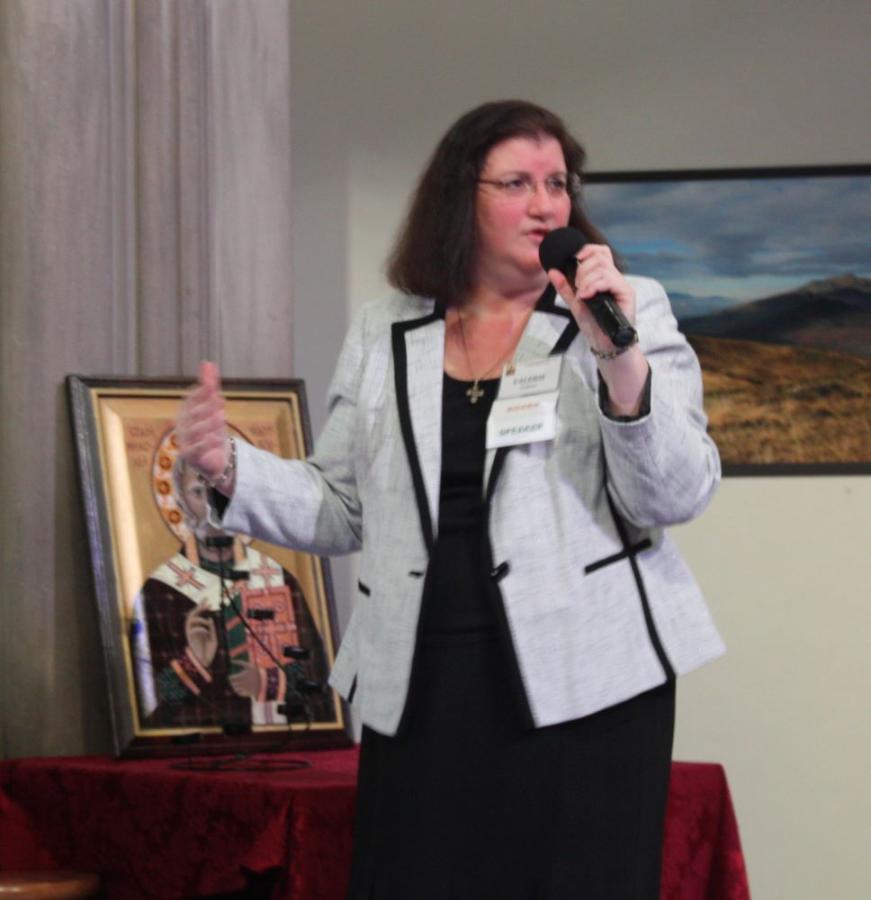
Trigger warning: we will be using the "F word"–feminism–throughout this piece. We won’t be offering an evaluation of feminism or its place in Orthodox thought. Instead, you will find an appreciation of a scholar who introduced Eastern Christian ideas to Western thinkers, illuminating our Tradition around many theological topics, and did so by her willingness to use this word.
If you have run across Valerie Karras’s name online or in person recently, you may have heard her called a living legend. She holds two doctorates, one in patristics, from the Aristotle University of Thessaloniki, and one in church history from the The Catholic University of America. She has written, taught, and lectured widely on women in early and Byzantine Christianity as well as gender in early church theology. She is a sought-after speaker about Orthodox Christianity in ecumenical and interreligious spheres. Dr. Karras is also an accomplished musician, with a diploma in Byzantine music from Greece, and has served in a variety of Orthodox parishes as chanter, choir director, and organist.
As a scholar, Dr. Karras has long chosen to engage the theologies of the East and West by using feminism as a lens. “Feminism” here simply means looking at how history and its texts reflect not only on human beings, but on women in specific. Her work necessitated an immense amount of intellectual groundwork in comparing the dynamics of Eastern and Western thought, while keeping her own feet planted firmly on the Eastern side of the divide. She remains one of the pioneers for the work that the current generation of Orthodox women theologians is doing, not least because she was one of the first Orthodox feminists to question power dynamics and modes of thinking. In her article “Eschatology” in the Cambridge Companion to Feminist Theology, she solves a notable problem within Western eschatology by using Eastern Christian ideas. She showed that the Eastern (and more ancient) teaching was more attentive to and favorable to women—more feminist, in other words—even though feminism per se is secondary to good eschatology. She was among the first to demonstrate that the Orthodoxy of today brings women more into the fullness of its life, its theology, and its structures when it lives up to its ancient roots.
It’s critically important to note that, by calling herself a feminist, Dr. Karras has drawn a great many Western thinkers to Eastern theology. Western scholars searching the databases back in the day for articles on feminism in theology read her “Feminism and Eschatology” and learned about Eastern Christianity for the first time. Many Western scholars who now appreciate and even draw on Eastern Christian thinking didn’t get their introduction to it from Schmemann, Hopko, or Zizioulas. They met Orthodoxy because of the volumes where Dr. Karras was published, because she was willing to use a word rejected by many other Orthodox scholars. Whether you find that word attractive or troubling—and a lot has to do with how you define it—she ended up creating a significant impact by using it.
Valerie Karras is our Notable Woman this week. Dr. Karras is a notably warm and kind presence whose thought is marked by incisiveness and a thorough grounding in historical fact. As an example, here is a short excerpt from a 2015 interview for The Wheel magazine, in which she addresses one of the basic confusions around women being ordained to the diaconate, that they would afterward slide down an inevitable slope into the priesthood:
"It really concerns me particularly when clergy don’t seem to understand the difference between the diaconate and the priesthood. Now there’s a relationship between the priesthood and the episcopacy, in fact of course one of the titles for bishop is…chief priest, head priest. So [in the Liturgy] the priest is acting on behalf of the bishop, that’s why the bishop signs the antimension that the priest has on the altar, so the priest is able to celebrate the Divine Liturgy… and the other sacraments on behalf of the bishop. The only sacrament that the bishop does that the priest cannot do is the ordination of [clergy]….
"The deacon is kind of a liminal position. Even though the deacon is ranked as one of the three major orders of clergy — we see that from the early Church orders, there’s clearly a distinction in the ordination rite, and certainly that’s made explicit in some of Justinian’s legislation — even though the deacon is ranked with the priest and the bishop as part of the…priesthood in the broader sense, one of the major orders of clergy, the diaconate is still kind of a liminal office…, the deacon cannot be the celebrant, the deacon cannot baptize, the deacon cannot celebrate the Eucharist; he assists in the celebration of the Eucharist but he is not himself the celebrant…. So the deacon is very different from the priest and the bishop because the deacon does not celebrate the sacraments. The word ‘deacon’ comes from… the Greek word that means ‘service’. We see from the New Testament that their primary roles were to do what we would today call social service, and they also did administrative functions… for the Church."
(Interview in The Wheel Magazine, June 29, 2015)



